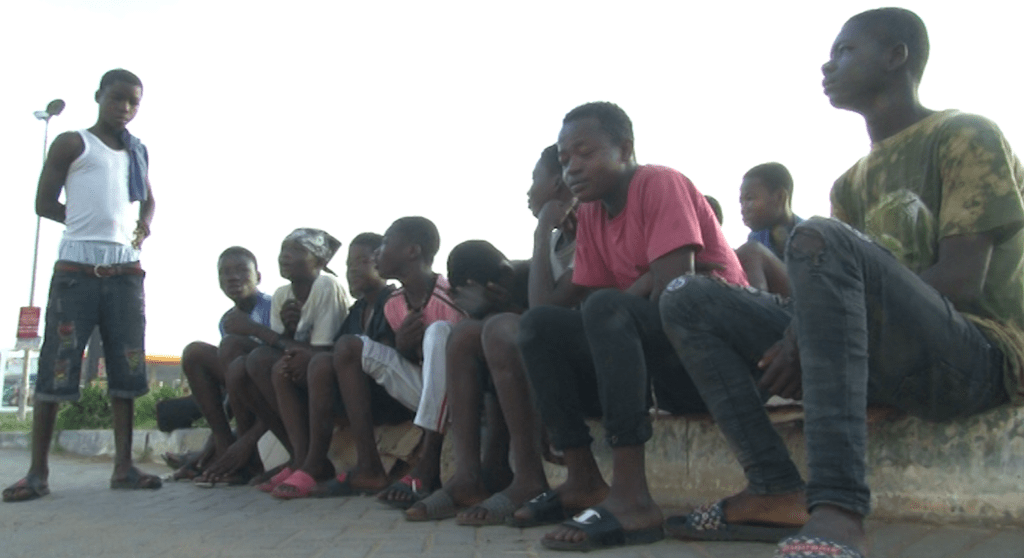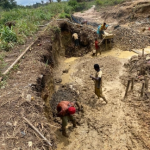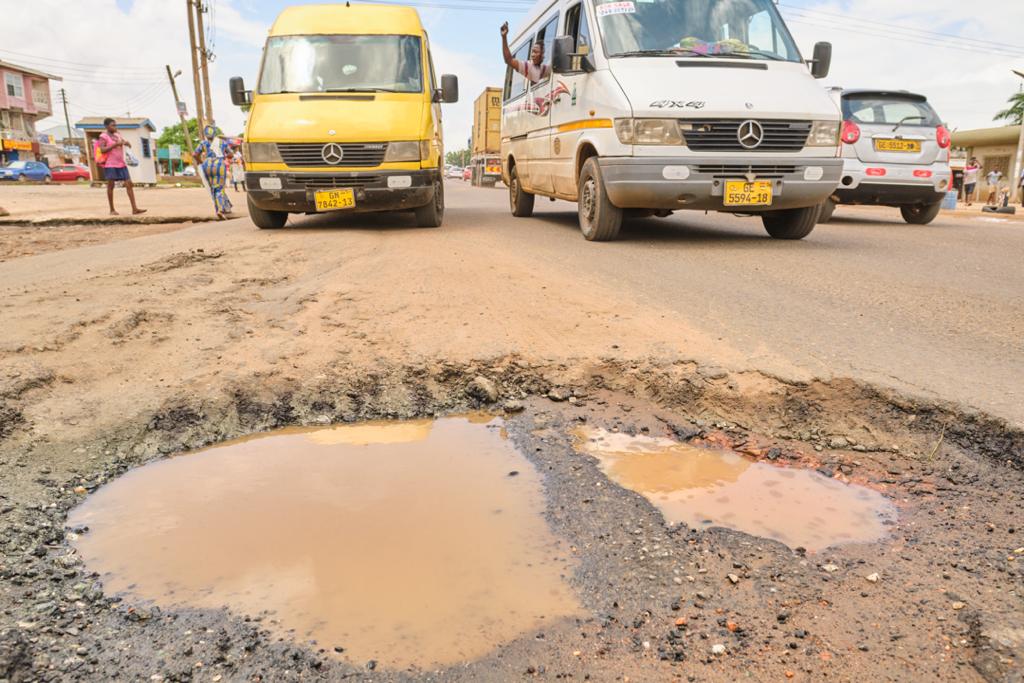Streetism is gradually becoming an albatross on the neck of Ghanaians, particularly, those who live in the capital city, Accra.
With some estimated sixty-one thousand children, both foreign and locals on our streets, many seem to question the interest of the State in these children.
A very bright sunny morning at the Marina Mall enclave in Accra, an active transport system has kept the environment busy and buzzing.
On the shoulders of the busiest road in the area, a group of teenagers have gathered here. Some were still sleeping while a couple more were awake to a new day.
For months, these children who have migrated from different parts of the country, sometimes from the continent to the enclave have found solace on the streets of Accra.

This is despite sometimes the harsh weather conditions. Their health and safety are equally at risk. Child delinquency, parental neglect and poverty have fueled the practice over the years.

During the day, the young boys perform menial tasks which includes washing of wind screens of cars in traffic to earn pittance for a living. On some occasions, they directly beg for money from passers-by.

Not even the danger of being knocked down by motion vehicles will deter them. The street children numbering about fifteen, claimed to making money from their menial business on the streets reinforcing their solace on the street.

Another said, “street life is good but one suffers when it rains”. Thirteen-year-old Nana Yaw who had traveled from Kumasi to Accra told 3news.com’s Stanley Nii Blewu that he has come to Accra to hustle so he can send money home to parents. “My parents are suffering because they are poor. ”

Of more concern is the informal recruitment of foreign child beggars onto the streets. The police which is mandated to enforce the legislative instrument which criminalizes begging in Ghana does not seem to have implemented our laws for decades, worsening the situation.

This also means that players who are behind the scenes are emboldened to send more vulnerable children to the streets. Perhaps, it’s a thriving business for them.
Child begging, according to the International Labour Organisation (ILO), is a form of forced child labour.
Some child rights advocates also hold same view as the practice exposes children to constant danger.

Under the Beggars and Destitute Act (NLCD 392), section (2), begging is a criminal act in Ghana and offenders are to be prosecuted. But this has not been the case for years in Ghana with the country’s capital city Accra, flooded with unkempt children.
The presence of these children is felt at almost every major road intersection in the capital city. From Shiashie to Ghana’s major Airport in Accra, to Opebea and even at the seat of government.
The traffic lights in front of the country’s seat of government, the Jubilee House is a spot
for some Nigerien children.

The Zongo junction enclave at Madina also plays host to another set of foreign beggars with deep rooted concerns from passersby.
They are not happy that the Ministry of Gender, Children and Social Protection has not been proactive in remedying the situation on streets in the country.
Last year, the Executive Director of Child’s Rights International, Bright Appiah facilitated the repatriation of several families of street beggars with the view of sanitizing the system.
But the prevailing condition of children on streets begging for alms leaves much to be desired.
Is it that state institutions do not care or it is business as usual to keep these children on Ghana’s streets?
















